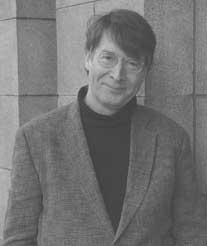Jochen Schulte-Sasse, renowned intellectual, dies at 72
FOR IMMEDIATE RELEASE
Schulte-Sasse worked with the University of Minnesota Press on multiple projects, including the Theory and History of Literature Series and the journal Cultural Critique
Press Release Date: 2012-12-21T00:00:00

BY THOMAS PEPPER AND JOHN MOWITT
It is with great sorrow and the sense of enormous loss that we share the news of the death of Jochen Schulte-Sasse, Emeritus Professor in the Departments of Cultural Studies and Comparative Literature, and of German, Scandinavian, and Dutch at the University of Minnesota. Jochen died in Piedmont, California, on Tuesday, December 12, 2012, surrounded by members of his family. He was 72 years old.
For the last three decades, Jochen was never far from the activity of University of Minnesota Press. Beginning in the early 1980s, together with Wlad Godzich, and under the aegis of Lindsay Waters at the Press, he edited the series Theory and History of Literature, of which almost 90 volumes appeared. THL set a world-class standard for the intellectual horizons not only of literary and cultural studies, but for the humanities in the broadest sense. In publishing cutting-edge works—by contemporary scholars of global status, and in raising to that status the work of many younger scholars, as well as in translating and publishing unavailable masterworks of the last two centuries—THL rocketed the University of Minnesota Press to the status of an intellectual household word. Indeed, without this series and the cornucopia of works it put into worldwide circulation, multiple dimensions of present and future work of the highest quality in literary-historical and theoretical studies, in European philosophy and aesthetics, in sociology, and in postcolonial and cultural studies would have been unimaginable.
In addition, Jochen was fundamental to the founding of Cultural Critique, a well-respected Anglophone journal of cultural, theoretical and political analysis. Founded in 1985 by Donna Przybylowicz (in English at Minnesota) and Abdul JanMohamed (in English at UC-Berkeley), Cultural Critique included Jochen on its original distinguished editorial board. In 1999, he became a Senior Editor (along with Keya Ganguly and John Mowitt) and helped effect the move of the journal from Oxford University Press to the University of Minnesota Press. Jochen was keen to nudge the journal away from the evaluative task of cultural criticism and toward the titular problematic of critique. Intellectual history (Spitzer or Koselleck, not Lovejoy) eclipsed the work of textual interpretation. Additionally, Jochen wanted to take the journal in a more "interventionist" direction, famously organizing an early special issue on the Clinton impeachment proceedings. The current senior editors, Cesare Casarino, John Mowitt. and Simona Sawhney, have through the "In the Conjuncture" section attempted to honor and develop this legacy. Jochen's declining health sadly obliged him to resign from the journal in 2010, leaving it in trusted but stunned hands.
Jochen's personal, intellectual, and professional generosity, his enthusiasm, and his intellectual judgment were contagious amongst his students, colleagues, and those whose work he unstintingly fostered. He was a loving friend of what was most alive in people, thinking, literature, languages, language, scholarship, and art. Toward the end of his own life, Jochen's work concentrated on media, transmission, mediality, perspective, and the visual. Whoever knew him cannot forget his at once jocular, epigrammatic, and depthful example of structural causality in and as the real history of modernity, which began with the question: "Have I ever told you about how the expulsion of the Jews from Spain resulted in the Russian Revolution? Without the Diaspora, no Spinoza; without Spinoza, no Hegel; without Hegel, no Marx. . .".
He is survived by his brothers Hermann, Wolfgang, and Peter, his children Heike, Linn, and Daniel, and his partner of many decades, Linda.



